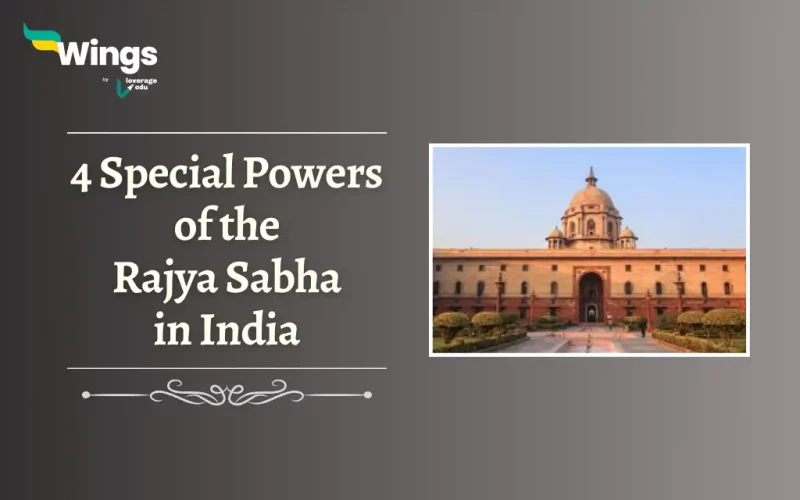The Rajya Sabha has 4 Special Powers essential to our Nation’s democratic framework. One of its most notable powers lies in its role as a check on hasty legislation which is due to the ability to scrutinize and amend bills from the Lok Sabha. Furthermore, via its expert committees, the Rajya Sabha goes deep into policies. Therefore, giving knowledgeable perspectives on various subjects. Additionally, its power to recommend Constitutional Amendments and Impeach high officials plays an important part in maintaining accountability and balance in India’s democratic machinery. Read on to learn more in detail about the 4 Special Powers of the Rajya Sabha in India.
Special Powers of Rajya Sabha
Consequently, the 4 Special Powers of the Rajya Sabha that the Lok Sabha does not have are as follows:
- The Rajya Sabha can empower the Parliament to enact legislation on a matter listed in the State List which is Article 249.
- Article 312 empowers the Parliament to establish new All-India Services that would be common to both the Central Government and the State Governments.
- Only the Rajya Sabha holds the authority to propose the removal of the Vice-President.
- This means that a Resolution to remove the Vice-President of India can only be introduced in the Rajya Sabha and not in the Lok Sabha as per Article 67.
- If the President issues a proclamation to impose a National Emergency or the President’s Rule or Financial Emergency when the Lok Sabha has been dissolved or the dissolution of the Lok Sabha occurs within the period allowed for its approval, then the proclamation can remain effective even if it is approved by the Rajya Sabha alone (Articles 352, 356, and 360).
Also Read: Why Do We Need Two Houses of Parliament?
Utility of the Rajya Sabha in India
Furthermore, while the Rajya Sabha has fewer powers in comparison to the Lok Sabha, its significance is justified by the following reasons:
- It revises and considers legislation from the Lok Sabha to avoid hasty, defective, careless, and ill-considered laws.
- The President of India appoints 12 distinguished professionals and experts to the Rajya Sabha. Hence providing representation for those unable to contest direct elections.
- Moreover, it preserves federal balance by protecting the States’ interests from excessive interference by the Central government.
Related Blogs
Lastly, we hope you liked our blog and gained an understanding of the 4 Types of Majority in Parliament. Moreover, you may even read more blogs and empower yourself with knowledge regarding Civics and Polity!
 One app for all your study abroad needs
One app for all your study abroad needs













